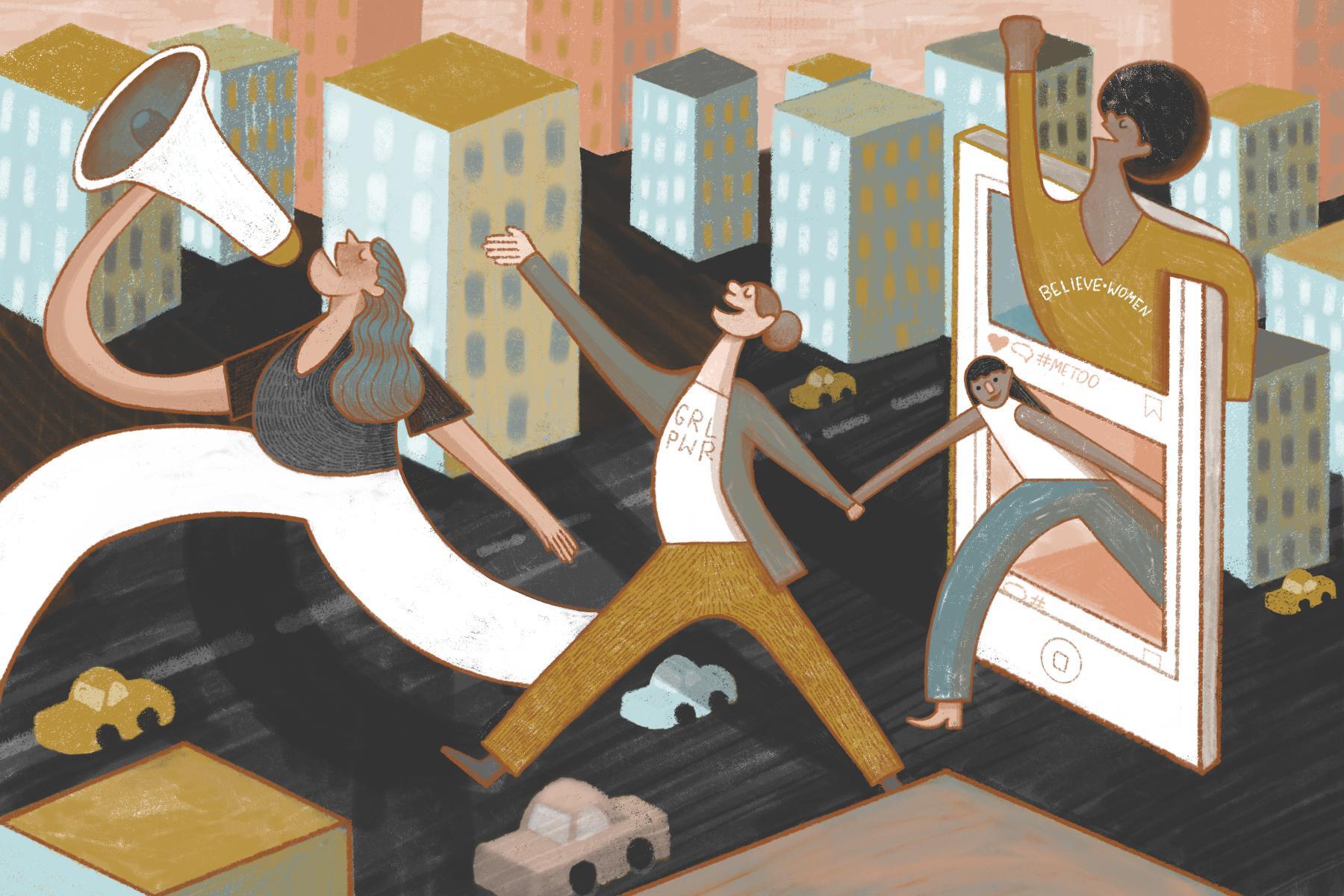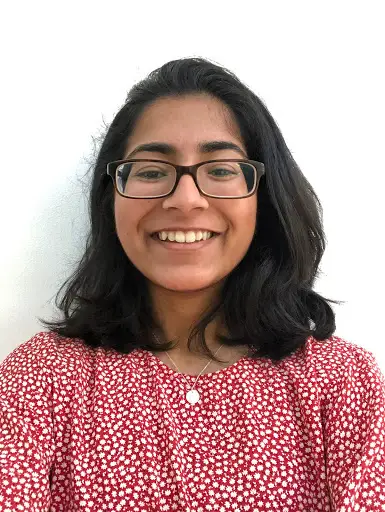Trigger Warning: This article discusses sexual assault and rape relating to the #MeToo movement, which may be triggering for some readers.
In recent weeks, the #MeToo movement has been brought back to life with the powerfully charged stories of victims of sexual abuse and harassment. But instead of celebrity allegations occupying news headlines, the voices of the movement have taken to a new medium: Instagram accounts run by college students.
The movement, founded in 2006 by social activist Tarana Burke, gained much of its traction in 2017 from actress Alyssa Milano echoing #MeToo following unprecedented sexual assault allegations against renowned film producer Harvey Weinstein. The movement encouraged a series of high-profile celebrities to come forward with their experiences of sexual harassment, shining a piercing light into the darkest depths of the film industry. A symbol of solidarity, #MeToo circulated across digital platforms and radically transformed the national dialogue surrounding sexual violence. Until it reached a standstill.
Although the #MeToo movement saw some victory with the conviction of Harvey Weinstein earlier this year, the pervasive and deep-rooted system of oppression warring against sexual assault survivors demonstrates how much work is left to be done. Without fail, victims’ stories continue to be discounted by men in power. This politicized and toxic rhetoric can even be shamefully, and ironically, seen in the nation’s most hallowed halls of justice with the confirmation of Brett Kavanaugh to the Supreme Court.
Beyond its fleeting glimpse into the universality of sexual violence, the #MeToo movement made remarkably few strides in holding perpetrators accountable. In the words of Burke herself, the movement further fell short by leaving out “everyday people,” ranging from trans and disabled people to Indigenous women and working-class Americans.
But a few weeks ago, the dim embers of the #MeToo movement were fanned into a raging inferno. Everyday people turned to what has become a hallmark of modern-day activism — social media. For a population of college students galvanized by the social media activism of the Black Lives Matter movement, it was a natural next step to lend a platform to the quieted voices of sexual assault survivors.
The collegiate resurgence of the #MeToo movement is marked not by the weighty hashtag, but rather by anonymous statements on student-run Instagram accounts. Students from nearly every United States college and university, each burdened with its own harrowing history of sexual assault, have dedicated Instagram accounts where survivors’ stories can claw to the forefront of the public eye. Victims can privately submit their narratives to these accounts, like @cornellsurvivors and @uconn_survivors, without fear of judgement or individual backlash.
Behind the safe curtain of anonymity, survivors can evade the suffocating pressures of society and share their stories in a space that is both safe and validating. As a result, these college Instagram accounts have amassed thousands of followers. Individuals have built a community of survivors willing to share their traumatic experiences for the first time, as well as supporters willing to hear these experiences. Anonymity further rectifies a misstep of the early #MeToo movement by erasing the isolating privileges of a wealthy, white, cis-woman identity.
“Many people may feel like they cannot share their stories because of the reactions of those around them, or feel like their story is not ‘bad enough’ to be shared,” writes a post on @voicesofsb, a page for Stony Brook University students. “Assault is assault, no matter the degree of what they did. Your story is just as valid as anyone else’s and it matters just as much. This is a safe space.”
https://www.instagram.com/p/CBzMlstjkAz/
The results of the renewed movement speak for themselves. Across the nation, victims empowered enough to speak out have come forward with stories that are rarely heard in the average news cycle: stories of college administrations turning a blind eye to allegations, sexual abuse of minors, assault from romantic partners and of males and non-binary people.
These accounts have also exposed the implicit, yet rampant rape culture plaguing the collegiate system of Greek life. Post after post describes instances in which victims were horrifically assaulted by fraternity members during or after parties, which are often seen as fundamental to the college social experience.
“fraternity culture is rape culture,” one college student wrote in a tweet. “the greek life system is designed in a way that makes everyone, especially girls, reliant on frat boys if they want to party and socialize. frats collectively use this social capital to objectify, coerce, abuse, and then silence women.”
fraternity culture is rape culture. the greek life system is designed in a way that makes everyone, especially girls, reliant on frat boys if they want to party and socialize. frats collectively use this social capital to objectify, coerce, abuse, and then silence women.
— william (@peakedin2009) June 20, 2020
This imbalance of power, in conjunction with the complicit acquiescence of Greek life organizations, perpetuates the culture of rape that has subjected victims to overwhelming pain, trauma and injustice.
But beyond the exposé of fraternity sexual abuse perpetrators, the reinvigorated #MeToo movement has infiltrated a space that has eluded the dialogue of sexual assault for far too long: the South Asian community. For generations, South Asians have deemed sex and sexual assault a cultural taboo, and a horrific breach of the unspoken social contract that sex is a ritual performed between man and woman in marriage. This contract, immortalized in Bollywood, has systemically allowed countless victims to fall through gaping cracks of obsolete cultural taboos, and followed many South Asian immigrants over to the United States.
College-age South Asian males, once able to hide in the shadows of this taboo, have now been rightfully unmasked to the world for their offenses. By coming forward with stories of their perpetrators, victims overcome destructive rhetoric that sexual assault should be permanently left under the rug of South Asian misogyny to avoid the discomfort in discussing sex.
Outside of shifting cultural dialogues, the revitalized #MeToo movement has led to measurable physical change. Universities, confronted by their own inertia, have been forced into making statements promising support for sexual assault survivors and sanctions against social fraternities. And for survivors who wish to move past the validation of anonymous story-sharing, the Instagram accounts offer lists of resources that can provide both emotional support and opportunities to pursue legal justice.
There is still much progress to be made to reverse decades of silencing sexual abuse. But for college students, using social media to uproot systems of oppression imposing this silence has been more than a step in the right direction. This generation has once again proven that social media has inherent value beyond mere entertainment. It can be a democratic, effective stimulus for real change, and a resounding, omnipresent outlet for sexual assault victims to be unquestionably reminded that they are not alone.

















